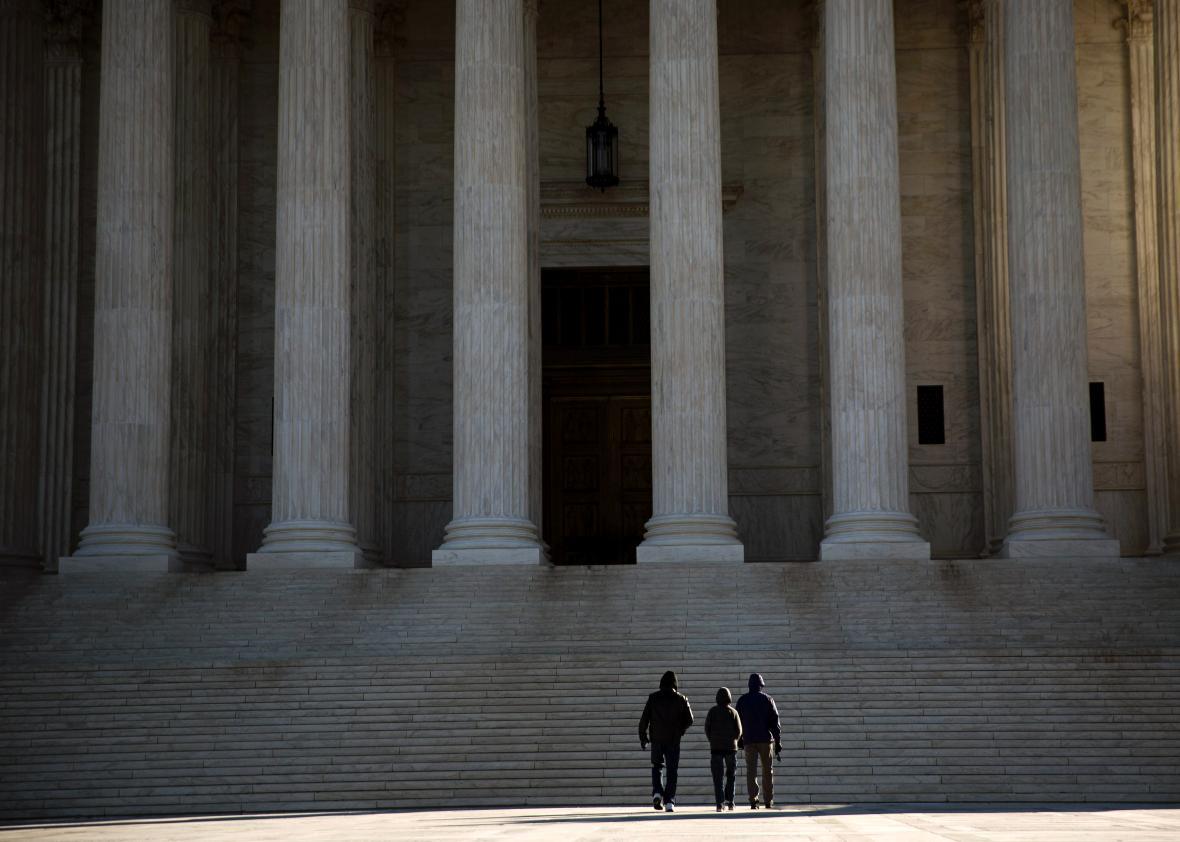Monday morning in a brief, unsigned (or per curiam) order, the U.S. Supreme Court summarily reversed the decision of the Alabama Supreme Court in a case called V.L. v. E.L. The Alabama court had refused to recognize an adoption awarded to a lesbian mother, which a Georgia court had granted. But the eight members of the U.S. Supreme Court unanimously found that the Alabama court’s refusal to recognize the same-sex adoption violates the longstanding principle that courts must afford “full faith and credit” to judicial rulings and decrees from other states.
In the closely watched case, one of the two partners, known in the pleadings only as “V.L.,” had adopted the three children her partner, E.L., delivered through pregnancy by a donor while they lived together. They established temporary residency in Georgia in order to gain these very rights. Georgia granted the adoption. The couple never married but raised the children together and later broke up after 17 years. V.L. sued in Alabama state court, accusing E.L. of denying her visitation and custody of the now 13-year-old and 11-year-old twins.
Alabama’s Supreme Court then refused to recognize the Georgia adoption, finding that the Georgia courts violated their own laws in granting the adoptions in the first place. Alabama thus ruled that V.L. did not deserve custody or even visitation with the children. V.L. contended that the U.S. Constitution’s full-faith-and-credit clause demands that courts honor the judgments made in another state. The high court agreed Monday, without a published dissent, finding that the adoption “appears on its face to have been issued by a court with jurisdiction, and there is no established Georgia law to the contrary.” It thus ruled that “the Alabama Supreme Court erred in refusing to grant that judgment full faith and credit.”
The Supreme Court had already blocked the Alabama court order from going into effect while the justices considered whether to hear the controversy. The justices, in granting the summary order, decided they didn’t need to hear arguments in the case at all. The case reflected all the ways in which custodial rights for same-sex couples will continue to be a fraught and complicated issue in the state courts, even with the question of same-sex marriage resolved last term.
Tobias Barrington Wolff, professor of law at the University of Pennsylvania Law School, was a lead author on the amicus brief to the Supreme Court submitted on behalf of scholars of the conflict of laws—the field of law dealing with the operation of judgments across state borders. He told me Monday morning, “This ruling marks a major turning point. The court has reaffirmed that full faith and credit—one of the cornerstones of our system of government—applies to same-sex couples and their families. And the summary reversal and unanimous vote both signal to courts around the country that the obligation to treat same-sex couples equally in our legal system cannot be avoided, whether through clever tactics or outright hostility.”
